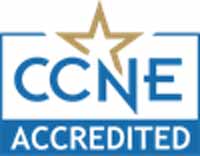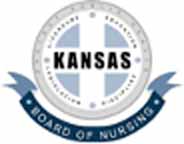About the School of Nursing
The School of Nursing is located in the Mother Teresa Center for Nursing and Health Education, a space dedicated for innovative learning and clinical training. Location Information
Mission Statement
The mission of the Nursing Program is to provide an evidence-based curriculum to prepare future nurse leaders and lifelong learners. We educate students to become professional nurses who will deliver person-centered, ethical, holistic, compassionate, safe, and effective care.
Degree
Benedictine College offers a Bachelor of Science in Nursing (BSN) degree.
The four-year program is what is known in nursing as a 2 + 2. Students complete two years of liberal arts studies and nursing prerequisites; completing all the general degree requirements of Benedictine College prior to the nursing program. Students will typically apply to the nursing program in their sophomore year and take nursing courses their junior and senior years.
Program Outcomes and Performance Indicators
For students entering the School of Nursing FA 2023 or later, the following program outcomes, based on the AACN Essentials of Baccalaureate Education for Professional Nursing Practice (2008), drive the undergraduate curriculum. The graduate of the Benedictine College Bachelor of Science in Nursing program will demonstrate the following role dimensions of the professional nurse.
- Formulate well-reasoned clinical judgements based on current evidence in the care of diverse clients across the lifespan.
- Provide person-centered healthcare across the continuum of care.
- Implement safe, quality, and cost-effective patient care in the healthcare system.
- Integrate legal and ethical standards into professional nursing practice.
- Model effective communication among patients, families, and interprofessional team members.
- Demonstrate leadership and professional identity in nursing practice.
- Apply informatics and healthcare technologies to the care of patients, families, communities, and populations.
Accreditation

The baccalaureate degree program in nursing is accredited by the Commission on Collegiate Nursing Education, 655 K Street, NW, Suite 750, Washington, DC 20001, 202-887-6791.

The Pre- Licensure Baccalaureate of Nursing Program is approved by the Kansas State Board of Nursing (KSBN) to admit 36 junior students each year for a total of 72 students.
Facilities
Opened in the fall of 2010, the upper level of the Mother Teresa Center for Nursing and Health Education houses the college’s nursing program. The nursing area consists of a large classroom, a clinical skills lab, four simulation rooms, an area for practicing clinical assessment skills, several study areas, seven faculty offices, and an administrative office.
Licensure
Professional licensure requirements by state for Benedictine College Nursing Program can be found here.
